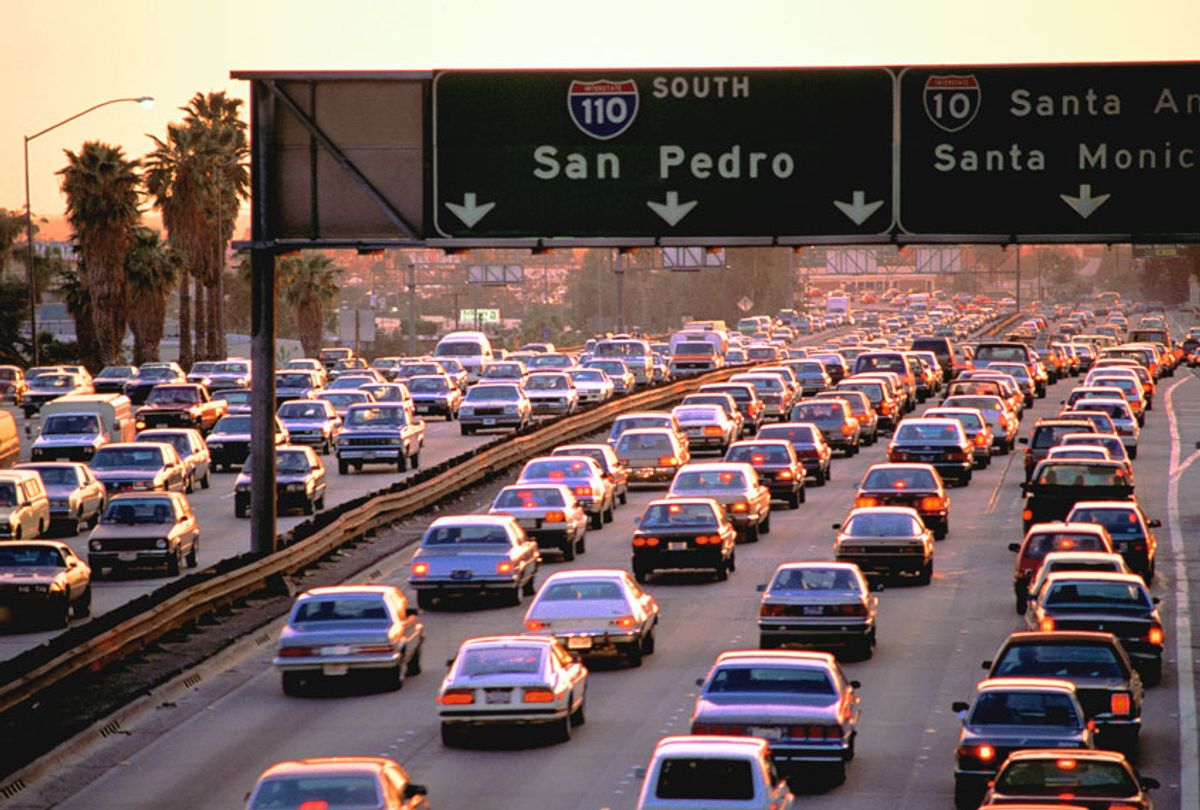Moving to a city is one of the best ways to shrink your carbon emissions: Apartments are more energy efficient than single-family homes, and public transportation works better in urban areas. But many of the most environmentally friendly cities in America have closed their doors to newcomers with regulations that make new housing expensive, and leave neighborhoods racially and economically segregated.
All of this is especially true in California, where mild weather and ambitious climate policies allow residents to live lightly — but only if they can afford the sky-high cost of housing. On Friday, however, California got a trio of new laws that will cut away some of that red tape and allow more homes to be built. Denser cities should shorten commutes, lower emissions, and make for more equitable housing.
Though the laws won't make housing affordable on their own, together they strike a significant blow against efforts with zoning rules to keep cities rich and white, said David Garcia, policy director at The Terner Center for Housing Innovation, at the University of California, Bekeley.
"These votes are very symbolic because single family zoning has been so sacrosanct," he said. "It's kind of a sea change."
One law, Senate Bill 9, permits Californians to build duplexes, or split their properties, in areas with zoning ordinances designed to allow only a single family per lot — which comprises two thirds of zoned land in California, Garcia said. Headlines from around the state suggest that the new law has abolished single family zoning. That framing frustrates Stephen Menendian, a researcher at the University of California, Berkeley who studies the way policies affect inequality.
The new law erodes the effects of single family zoning, he said, "but it in no way overrides or abolishes it."
That's more than a semantic distinction: A study from the Terner Center shows that it would make economic sense for 700,000 landowners to build new homes on their lots as allowed under the new law. That's as much housing as California builds in a year. But, notes Garcia, one of the authors of the report, far fewer will actually do it. While that could help combat California's housing crisis, it is not enough to overcome cities' use of zoning rules to keep poorer people from moving in and neighborhoods segregated by wealth or race. "It will help, but it's not a lot in the big picture," Menendian said.
Another law, Senate Bill 10, reduces the hurdles cities have to leap to change their zoning codes and let in more residents. It allows local governments to relax zoning rules in urban areas with plenty of public transit, without going through the California Environmental Quality Act's lengthy review process.
"The California Environmental Quality Act is an important law, but increasingly over the years it's been used to stop infill [building homes in cities], public transportation, and other environmentally responsible actions," said California State Senator Scott Wiener, who wrote the law.
Senate Bill 10 won't force the change of any zoning codes, but for cities like Berkeley, California, that have been trying to abolish exclusionary zoning, it could speed things up. "This new law will cut maybe five to 10 years off the rezoning process."
The third law, Senate Bill 8, extends an existing law that prevents cities from using the usual regulatory tricks to close the doors to new residents: It prevents them from downzoning to allow fewer people in, or hiking up building permit fees.
California has been the poster child for a state with solid climate policies, but such high prices that it limits the diversity of the residents governed by those rules. The high cost of housing in the state has pushed people out of cities and into wildfire zones, or out of the state entirely. These new laws won't change that reality on their own, but they are part of a larger effort.
California is the place illustrating just how bad a housing crisis can be for the environment. But it's also the place testing out a lot of methods to undo that crisis.




Shares